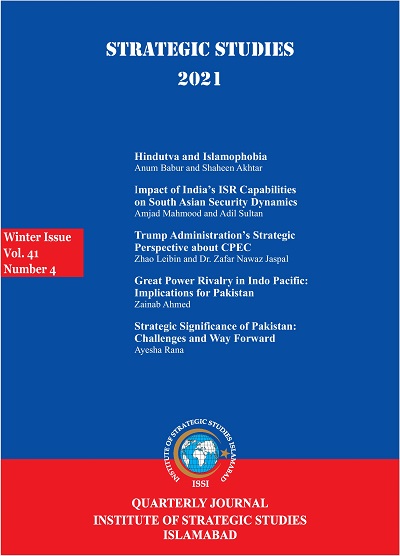Impact of India’s ISR Capabilities on South Asian Security Dynamics
Keywords:
Intelligence, Surveillance, Reconnaissance, India, Pakistan, Strategic EnvironmentAbstract
Intelligence, Surveillance and Reconnaissance (ISR) capabilities have grown exponentially over the past two decades. Almost all major powers are building their ISR potential for commercial and military purposes which has provided incentive for the other emerging powers such as India to follow suit and develop its own cross-domain ISR network. This is likely to adversely impact South Asian security environment where India and Pakistan, the two nuclear armed states, remain embroiled in a military competition and have experienced several serious military crises over the past many years. Acquisition of new ISR technologies could also provide incentive to India to exploit its apparent conventional military advantage against Pakistan and venture into a limited armed conflict in pursuit of its political objectives under a nuclear overhang. Owing to a long history of distrust such an attempt could quickly escalate conflict with the possibility of an all-out war including the potential for a nuclear exchange. This paper aims to discuss India’s ambitious plan to upgrade its ISR capabilities in all the four domains of warfare, i.e. space, land, sea and air; the evolving India-US cooperation in sharing of data and its implications for Pakistan.

Published
How to Cite
Issue
Section
Copyright (c) 2022 Strategic Studies

This work is licensed under a Creative Commons Attribution-NonCommercial 4.0 International License.



